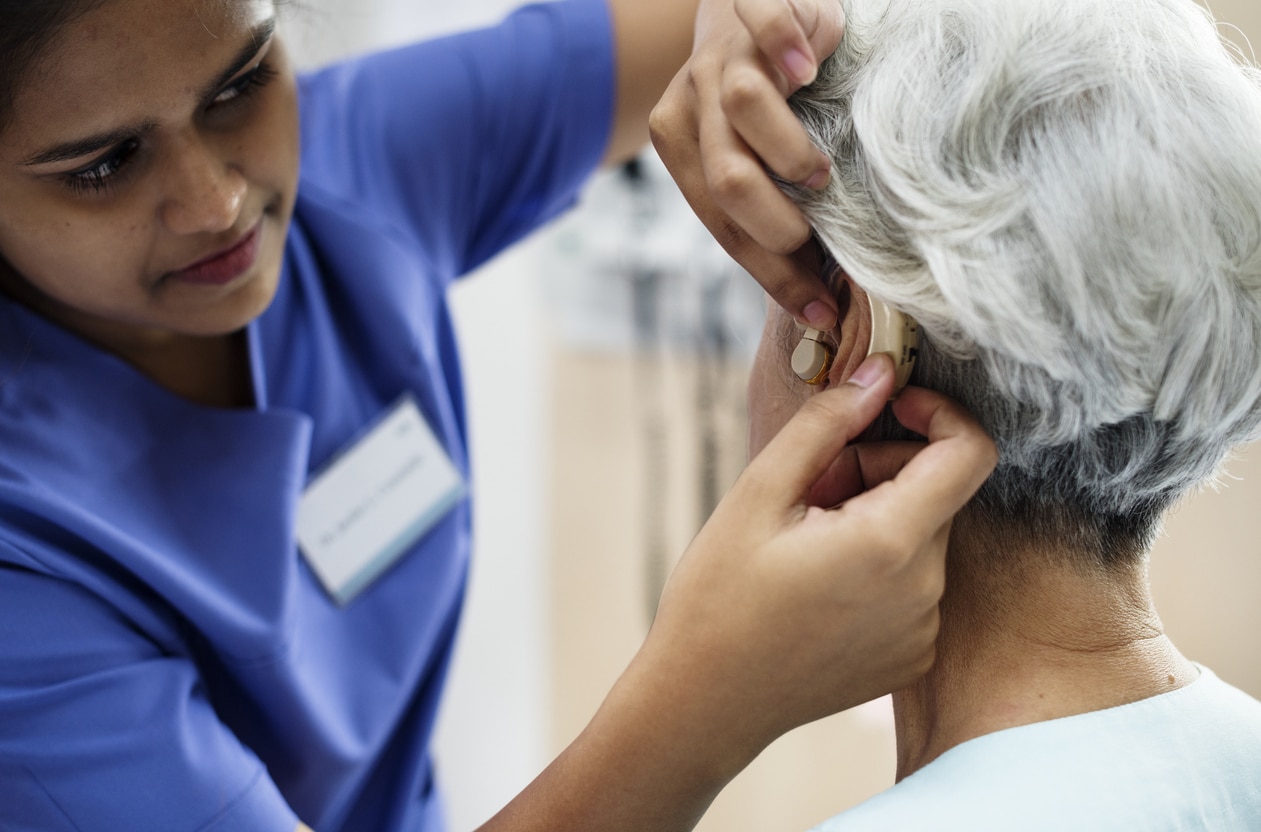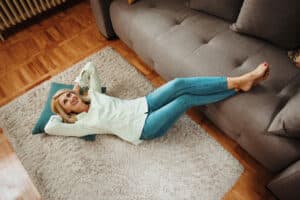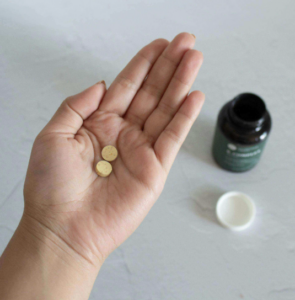Hearing loss affects about one-quarter of the population of adults by age 65. Yet most women in this age group don’t realize they suffer from it. I know I didn’t!
For as long as I can remember, I’ve had ringing in my ears – or tinnitus. I’ve never heard true silence, and I had no idea this wasn’t normal until I reached nursing school, where tinnitus was introduced as abnormal. As far as I know, I never failed a hearing test as a child or adolescent. Therefore, it wasn’t until I was 40 that I realized something wasn’t right with my hearing.
It all came to a head one night. After my husband had experienced a frustrating day at work, and I’d had a long day at home with our kids, we found ourselves having a rather tense discussion. My husband frustratedly asked, “Why do you always answer me with ‘What?’ or ‘Huh?'”
The answer was simple: I either didn’t hear the question or didn’t hear it correctly. That made us both stop and consider why. After a few minutes, my husband gently suggested I address this with my Ear, Nose, and Throat doctor (ENT).
Getting Diagnosed with Hearing Loss
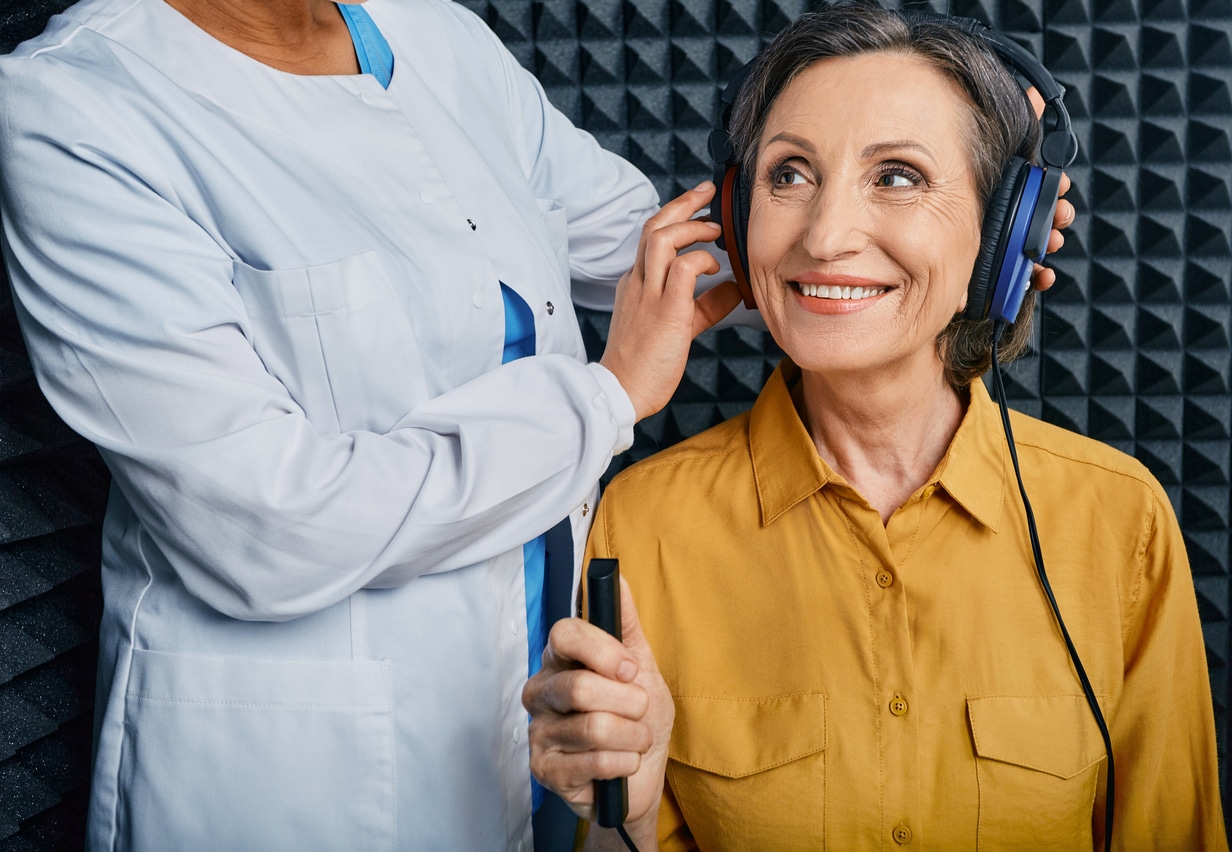
Fast forward a few weeks, and I did what my husband suggested at my next ENT visit. As luck would have it, the audiologist was in the office and available for a hearing screen. The results stunned me – I had already lost 30% of my hearing.
Still, my ENT didn’t recommend any corrective action at the time. The inaction bothered me. However, as a busy stay-at-home mom to three young children and a military spouse, there wasn’t much I could do about it without the ENT’s help.
How Hearing Loss Affects Life
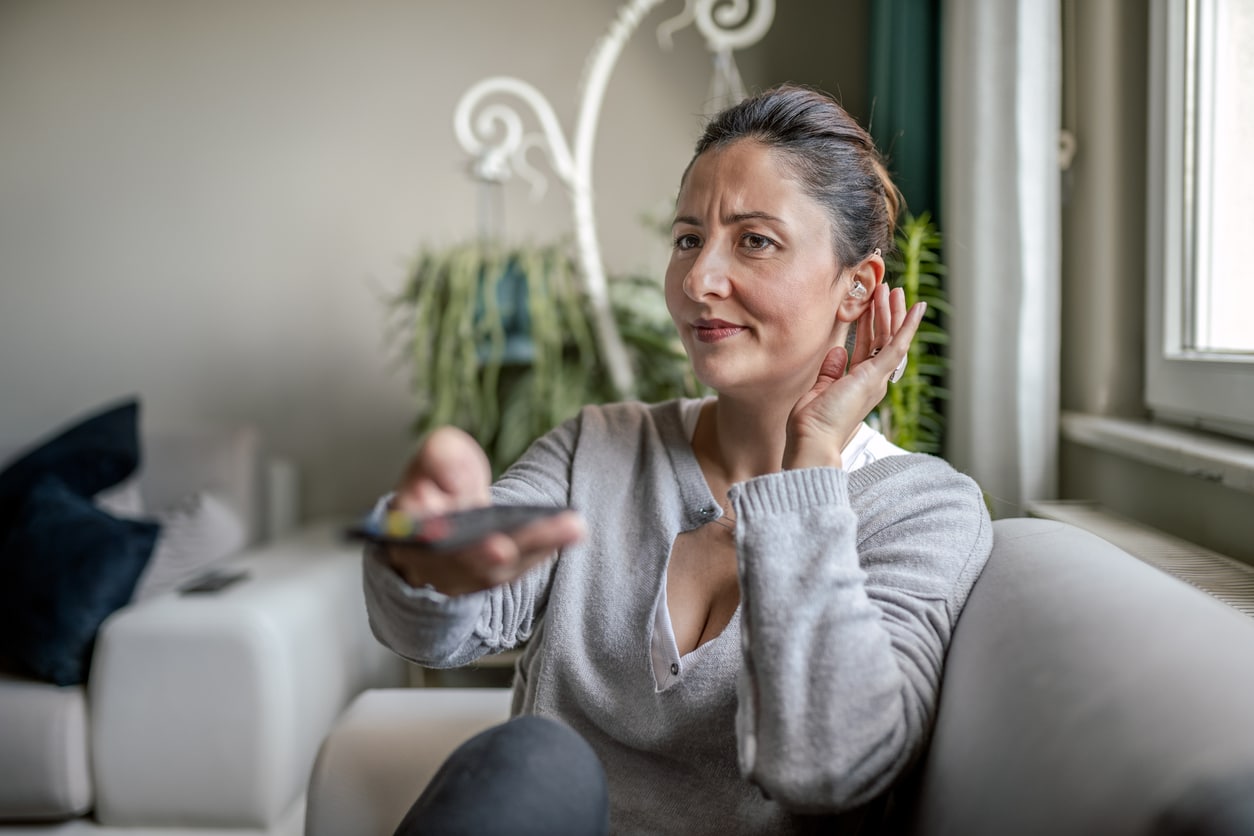
Knowing about my hearing loss caused me to consider how it affected my life. I began noticing how often I asked people to repeat what they said. It struck me how much I no longer enjoyed noisy environments. I had always been very social, yet sometime over the last 10-15 years, I began to feel uncomfortable in large group environments with lots of background noise.
I found it challenging to follow conversations. After attending several formal Air Force events, it occurred to me that I was reading people’s lips as they spoke more than I was actually hearing what they were saying. I would nod and smile appropriately based on physical and nonverbal cues. Unfortunately, I had little to contribute to the conversation because it was hard to follow. (How embarrassing would it have been to speak up only to find out I said the wrong thing?!)
A fellow Air Force spouse even recalled her first impression of me was that I was aloof and unfriendly. Later, at a more intimate event in someone’s home, she admitted my personality was vastly different. She hated how wrong her first impression was. That devastated me because the person she met initially was not who I really am. Disheartened, I wondered how many potential friends I had lost because I couldn’t easily participate in conversations.
Coping with Hearing Loss
As concerning as all of this was, I tucked my problem away to focus on my husband’s impending retirement and our move back home. Life became even busier when I returned to work full-time.
About five years later, I attended a work conference and stopped to talk with a vendor regarding cochlear implants for one of my clients. She noticed I had to lean in closely to hear her and focused on reading her lips quite a bit. Finally, the vendor asked if I had ever had my hearing checked.
I offered her a brief history and explained how my ENT hadn’t considered my hearing loss bad enough for treatment. She was astonished! Graciously, the vendor quickly referred me to her good friend, who just happened to be an audiologist in my area.
After my initial hearing screen with this doctor, she recommended hearing aids. Due to the type of hearing loss I suffered from (sensorineural), she reasoned hearing aids could potentially save my remaining hearing. Now, imagine my future hearing if I hadn’t been given them…
Hearing Aids

The first time I wore my hearing aids, I felt like a whole new world opened up. They didn’t solve the issue of noisy environments completely, but they did help decrease how often I read lips or had to ask someone to repeat themselves.
Since receiving my hearing aids four years ago, I’ve learned to be my own best advocate. Admitting I have hearing loss is no longer an embarrassment. Additionally, I am no longer hesitant to ask someone to speak up or speak more clearly.
If you suffer from hearing loss, my best advice is to find a good audiologist. Also, never be afraid to seek a second opinion. Verify your diagnosis or treatment, and ensure you’re truly being taken care of. My biggest regret is not seeking a second opinion sooner.
Want Better Hearing?
If you’ve found that you aren’t hearing as well as you used to (or that you would like) but are worried that the cost of hearing aids is too burdensome, there’s good news. While the options we’ve seen in years past could often have a hefty price tag, the reality is that they’re now more affordable than ever. You might have noticed the hearing centers at stores like Costco or Sam’s Club over the years; they’ve proven to be an excellent resource for purchasing reasonably-priced hearing aids.
If you’re interested in a top-quality, low-cost hearing aid, check out this option from Audien. The Atom Pro is a tiny, comfortable, and powerful in-ear hearing aid that comes with a portable wireless charging case. It offers an all-day battery on one charge plus incredible sound quality, all for the low price of only $249. Plus, the Atom Pro includes free shipping and a 45-day money-back guarantee.
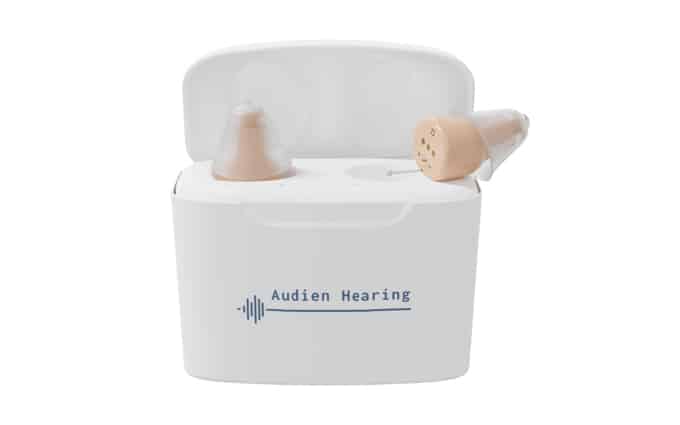
Interview with an Audiologist
Recently, I sat down with my audiologist, Dr. Michelle Hames Stone of Hearing Doctors of Georgia, to discuss the issue of hearing loss. Read on for our question and answer session.
What type of hearing loss do you find most often in the 50-75-year-old age group?
We mostly find sensorineural hearing loss. As we age, our ears change, much like the rest of our bodies. The nerves deteriorate and no longer function at their peak levels. Our ears are exposed to loud noises and noises for a long duration, which can contribute to hearing loss.
Certain medications we take, such as aspirin, statins, super strong antibiotics, and cancer treatments, can also damage them. Our ears may have been exposed to diseases that harm them, such as high fevers and temporary blood loss from strokes, blood clots, TIAs, etc. Organic changes to the nerves also happen, so even without extraneous factors, they don’t work to their peak.
How does hearing loss tend to affect this age group?
People lose the ability to hear soft and higher-pitched sounds first, such as birds singing or crackling leaves. Often, we see women having difficulty understanding in a group. When the conversation is happening, a person might miss part of a word or a whole word, and when the brain finally figures out the correct word, the conversation has changed.
It can make people mentally stressed and exhausted. You may not even realize some sounds you miss until you hear them again later. Women tend to turn the television or the radio up to hear better. If this continues, they will stop going to distinct functions because they struggle to hear properly. This can enhance depression and isolation.
Why is it important to have your hearing checked?
Hearing screens should be part of the preventative maintenance testing we all undergo as we age. A baseline hearing test will provide information on when hearing loss begins affecting your everyday life. Once someone starts losing their hearing, it affects their understanding. It can drop approximately 19% every five years that hearing loss goes untreated compared to only 2.3% every five years if it is appropriately treated.
By age 50, everyone should have a baseline hearing test. If there is no hearing loss and no family history of it, hearing should be checked every two to three years. If there is hearing loss without the need for treatment, a yearly exam is recommended.
What should the next step be if hearing loss is detected?
An audiologist is best suited to determine treatment options. They can decide whether or not it’s a medical issue and a referral to an otolaryngologist (ENT) is recommended, or if amplification is beneficial. If the hearing loss can be helped with amplification, the audiologist will recommend the best device to fit the patient’s listening needs, hearing loss, and lifestyle.
Hearing aids can open a whole new world. Not only can they help present listening situations, but they can also diminish the long-term effects of not hearing properly. Studies have shown that hearing loss is a leading contributor to dementia through not providing proper stimulation to the brain, as well as increasing issues with depression, isolation, and lower quality of life.
What do you wish more people understood about hearing loss?
That someone should not be ashamed of having hearing loss. There have been so many improvements to the design and technology of hearing aids that they are much less noticeable and have so many fewer frustrations. They are not perfect by any means, but if someone is fit with the correct device and has a good audiologist to provide the direction and education needed, the benefits very much outweigh their faults.
If you could offer one piece of advice for people living with hearing loss, what would you tell them?
Don’t wait until you can’t hear anything to do something about it. The longer the wait, the less help you can receive. I remember a patient telling me one day that he didn’t get hearing aids ten years before because he didn’t think his hearing loss was bad enough. This was the day I told him I could only help him hear about 30% of the words his wife spoke to him. My hands were tied.
Hearing aids now are not our grandmother’s hearing aids. I have been in the industry since I was a teenager and have seen the changes over time. I have also worn hearing aids for the past seven years and am constantly finding new sounds I don’t even realize I miss without them. It’s so much more enjoyable to sit on the back porch in the morning, drinking my coffee and hearing the world around me. It’s a noisy world, and I want to hear all of it.
Read More:
Is Hearing Loss Leaving You Lonely and Isolated?

